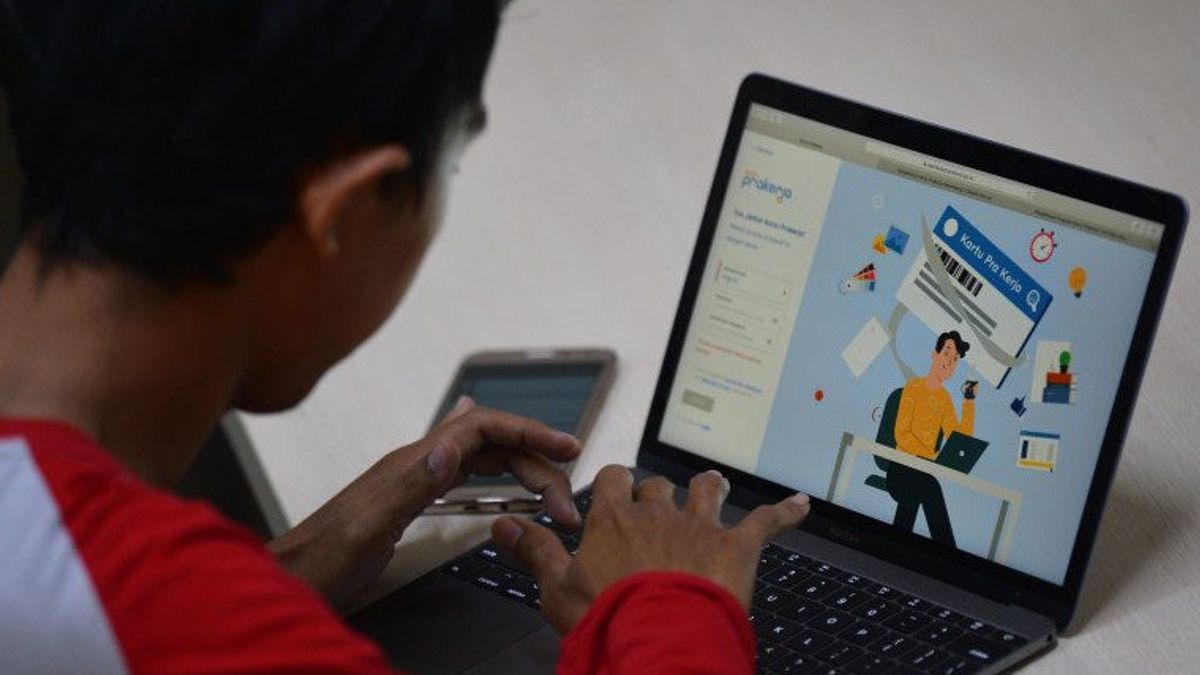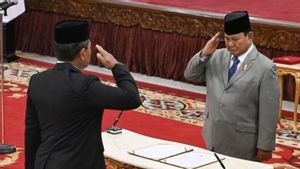JAKARTA - Researcher of the Institute for Economic and Community Research, Faculty of Economics and Business, University of Indonesia (LPEM FEB UI) Muhammad Hanri assessed that the capabilities related to digital literacy really need to be developed in the Pre-Employment Card Program.
Furthermore, Hanri assessed that with good digital capabilities, business actors can develop their business.
From several LPEM studies, it can be concluded that digital literacy really needs to be developed. Moreover, for example, for MSMEs, marketing, sales, and digital administration. It will have a positive effect on scaling up their business," he said, in Jakarta, Friday, January 6.
Furthermore, Hanri said, this is also related to workers in the creative industry and the current generation of workers who tend to be more dynamic.
Likewise for friends who work in the creative industry. Especially with the preference of the current generation Z work which tends to be more dynamic than its predecessor generations," he said.
He said, the Pre-Employment Card also needs to adhere to a skills monitoring system that harmonizes education and skills programs against the demands of the business world and the industrial world. This can take advantage of the Critical Occupation List (COL) or the Critical Work List in Indonesia.
The training type is also confirmed to be adjusted to COL, and the partnership system with the private sector is also expanded. To ensure these participants are well absorbed after taking training," he said.
Hanri conveyed that the challenge in the future is to change the perspective of participants that the Pre-Employment Card is not a social assistance program (bansos).
"The implementation of 2022 is good, but the challenge for 2023 is how to change the pre-employment paradigm that used to be like social assistance, to no longer social assistance, even though there is still assistance that will be received by participants," he explained.
In addition, he continued, the scope of the Pre-Employment Card should also be expanded considering its implementation with a normal scheme. Even though the enthusiasm in 2022 can be expanded again. Although there may be geographical challenges, this year offline training will begin," he concluded.
Meanwhile, Education Observer Indra Charismiadji said the government should find out the need for workers to then provide training.
"There should be mapping demand first. Because of the vocational, this is the inclusion of vocational education, yes, vocational can not only provide supply, but there must be demand and supply," said Indra.
Indra explained, every year there are around 2.6 million new job seekers, but only 1.8 million job vacancies are available. The rest compete with what's left and increase their skills through training.
"The government must focus on opening new jobs or new easy and cheap business capital, the benefits can be seen," said Indra.
Previously, Coordinating Minister for Economic Affairs Airlangga Hartarto said the Pre-Employment Card Program would be continued in 2023 with a normal scheme and an achievement target of up to 1 million recipients.
"The Pre-Employment Card Program will continue in 2023 with the implementation of a normal scheme regulated in Presidential Regulation Number 113 of 2022 whose implementation rules are stated in the Permenko of the Economy Number 17 of 2022," he said.
The implementation will target a number of certain skills training fields that are most needed today and time to come, namely by referring to various studies on the upcoming work market in Indonesia's Critical Occupation List, Indonesia's Occupational Tasks and Skills, World Economic Forum Study Future Job Report, and Indonesia Online Vacancy Outlook Research.
The English, Chinese, Japanese, Arabic, and French versions are automatically generated by the AI. So there may still be inaccuracies in translating, please always see Indonesian as our main language. (system supported by DigitalSiber.id)













